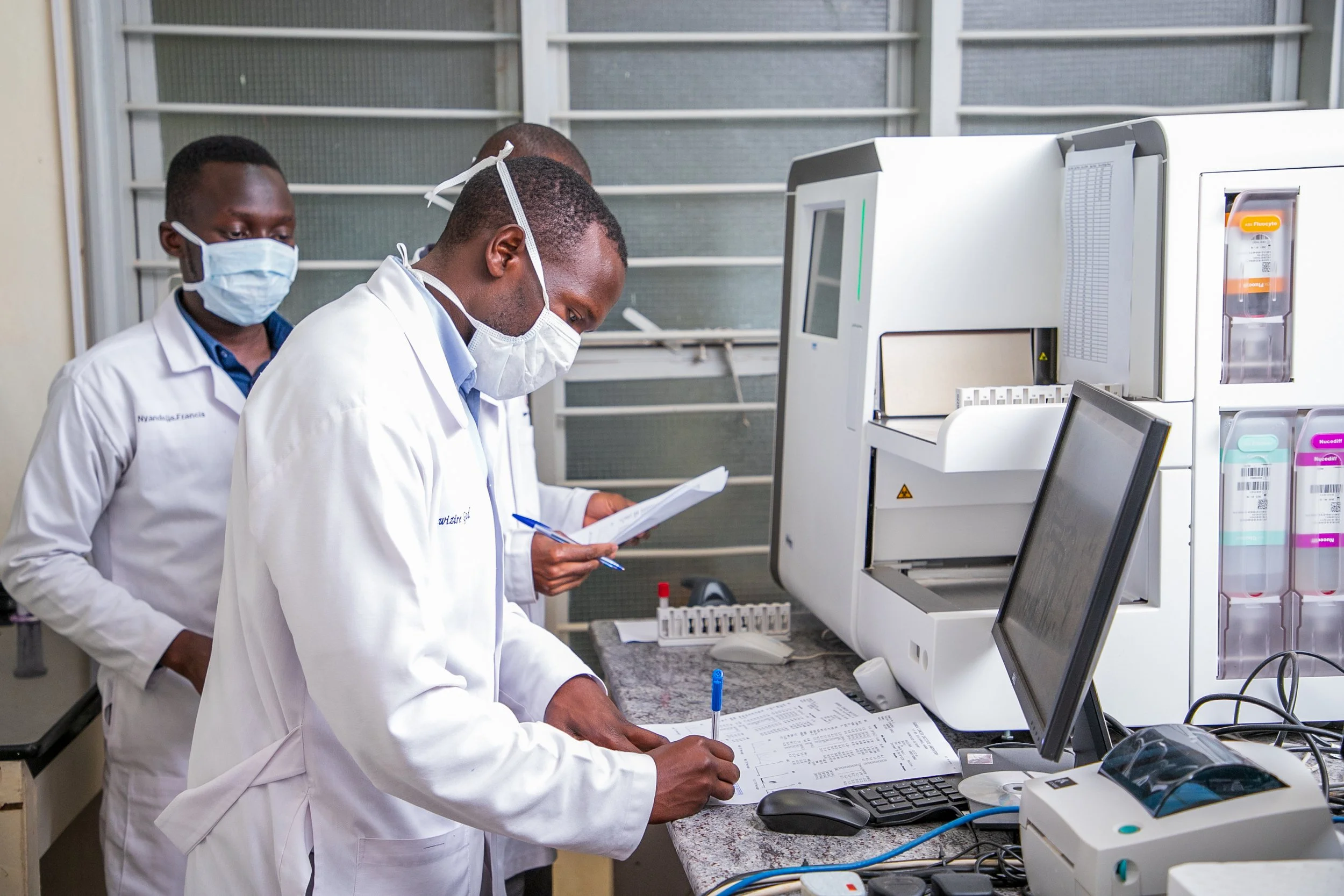Laboratory at Uganda Cancer Institute in Kampala, Uganda
This spotlight was hosted by Dr. Nixon Niyonzima, Laboratory Director
Q: Can you introduce us to your lab and its team?
A: The Uganda Cancer Institute is a specialized public medical facility under the Ministry of Health, dedicated to cancer care and research. In order to support efficient patient care and participation in research, a fully functional laboratory was established. Over time, the laboratory has undergone several transformational changes, expanding its scope from basic blood investigations to becoming a super-specialized facility offering a wide array of diagnostic and monitoring tests. Our laboratory operates under one management structure with three major sections: pathology, clinical, and molecular biology. Each section is equipped with specialized equipment tailored to their respective functions. We have a team of 33 highly specialized staff covering areas such as anatomical pathology, hematology, blood transfusion molecular biology, microbiology, immunology ,histopathology and biochemistry.
Q: What is the scope and volume of testing conducted at your laboratory?
A: The Uganda Cancer Institute plays a crucial role in the healthcare system, providing services for up to 100 inpatients and managing 350 – 450 outpatient visits daily. Each year, we receive over 8400 new cancer patients. Our laboratory at the institute has an extensive test scope, encompassing a wide range of biochemistry tests, tumor, and haematological investigations, including complete blood count, coagulation assays, hemoglobin and serum electrophoresis, reticulocytes, and blood films for morphology and hemoparasites. Additionally, we perform histopathology, cytology staining, and numerous immunohistochemistry assays, along with serological assays, culture and sensitivity tests, and molecular biology tests such as BCR/ABL, HPV general typing, BRCA1/2 genome sequencing, and viral load assays for HIV and Hepatitis B. Each month, our laboratory conducts approximately one million biochemistry tests, 8600 complete blood tests, 1000 assorted hematological tests, 650 histological tests, 1350 IHCs, and 450 assorted genomic tests.
Q: What are some accomplishments your lab is proud of?
The Uganda Cancer Institute is making significant strides towards establishing a national reference laboratory for cancer diagnosis and research. To support this goal, substantial investments have been made in human resource capacity building. Several laboratory professionals have been trained in all key specialties at the institute, and all trained personnel have been retained to help extend their acquired skills to others who may lack such techniques. However, to continue improving the state of the Uganda Cancer Institute Laboratory, staff require more hands-on training in well-established laboratories. Additionally, the laboratory is in the final preparatory stages for SANAS accreditation and will undergo the initial SANAS assessment in July 2024.
Q: What challenges does your lab face?
A: The main difficulties we face include the need for staff retraining, and we are considering setting up a continuous training program. There are also challenges in financing new tests and equipment to increase our capacity. Additionally, not all the tests at the laboratory are part of an External Quality Assurance (EQA) program due to the very high costs involved. Furthermore, we struggle with outdated equipment.
Q: What are your future plans for the lab?
A: We are excited about moving to new custom-built facilities soon. Our future plans include establishing a Pan-cancer biorepository and further developing into a national reference laboratory for cancer diagnosis.





